There
is something inherently cool about intergalactic Westerns. This is
partially because, just like that thing where you improve fortune cookie
fortunes by adding “in bed” at the end, there is nothing that cannot be
made cooler by adding “IN SPACE!” Accountants... IN SPACE! Fast food
franchisees... IN SPACE! Farm boys who used to bull’s-eye womp rats in
their T-16... IN SPACE! It’s really no surprise then that a show with
the premise “Cowboy smugglers... IN SPACE!” would catch on.
Sadly,
it’s also no surprise that the show never really delved into the issues
that arise from melding nineteenth century scenarios with a futuristic
setting. It revelled in nostalgia while simultaneously asserting its
progressiveness. Nowhere is this clearer -- or more problematic -- than
in the characterization and treatment of Inara Serra.
Intelligent,
self-confident, and assertive, Inara is a fascinating character. Eight
months before we meet her, she left everything she knew behind on the
planet of Sihnon, where she spent her life training and working as a
Companion. Companions are one of Whedon’s innovations, and they work
well in concept. Replacing the ubiquitous prostitutes of the classic
Western, Companions are highly trained women who hire themselves out as
sexual partners and social accompaniment. Their work is both legal and
respectable, and their status allows the vessels they travel on access
to higher class planets. Their training covers music, art, combat, and
psychology, and they are expected to cultivate these skills with
practice. They choose their own clients and, when a client misbehaves,
they possess the ability to blacklist them and prevent them from ever
hiring another Companion.
Because
its foundation is female sexual agency, the concept of the Companion is
fairly progressive; however, the execution in the show is incredibly
dubious.
The
first and most obvious problem with the Companion model is
representative of a problem with the show in general: its egregious
displays of Orientalism. While the world of Firefly
is clearly inspired by Asian culture, it’s mainly used to spice up the
otherwise traditional Western feel of the show. Some people -- mostly
extras -- wear Asian clothing, do Asian dances, or, you know, are even
sometimes Asian themselves. A street vendor’s sign advertises snacks
made of dog meat. The main cast -- none of whom are Asian -- curse in
poorly pronounced Mandarin. The Companions are based on oiran,
Japanese courtesans somewhat similar to the more well-known geisha. As
if it weren’t enough that the only principal characters with an Asian
surname are a doctor and a martial artist, the most visible piece of
Asian culture feeds into the Western conception of the East as a land of
sexual pleasure.
Another
problem that I have with the Companion lies in the show’s treatment of
what could have been a legitimately progressive part of their practice.
In “War Stories,” the B plot consists of Inara entertaining a client
onboard the ship. Although she explicitly asks for privacy, several of
the other crew members look on as the client boards and they all react
with shock when, wonder of wonders, the client is a woman. Jayne
immediately takes the situation as masturbation fodder and states, “I’ll
be in my bunk.” He repeats the phrase (and the lecherous look) later
when he sees the councillor and Inara share a quick peck as the
councilor departs.
Identifying
Jayne with the male gaze may have allowed the writers a great
opportunity to explore the difference between the fetishistic fantasy of
lesbian sex and the reality of physical love between women and, on the
surface, that’s precisely what they did. In the privacy of her shuttle,
Inara gives the councillor a massage and commiserates with her about her
need to “relax with someone who’s making no demands on me.” Inara
informs her that, while the majority of her clients are men, she
sometimes feels the same way; as she observes, “One cannot always be
oneself in the company of men.”
Unfortunately,
the larger context for this scene undermines its value, in the sense
that there is no larger context. Whereas other episodes tend to make use
of Inara’s clients in the plot, the councillor plays almost no role at
all, providing only the equipment to reattach Mal’s ear after his
tormentor removes it. This lack of relevance, in combination with the
long, lingering shots of the councillor’s naked back in the scene from
which the male gaze was ostensibly banished, suggests that the
introduction of a female client was all about “the show.” The dialogue
makes it out to be Inara and the councillor’s escape from male eyes, but
the way it’s shot and the way it simply doesn’t matter to anything else
makes it gratuitous. By this time, we are also well aware that Inara’s
actual love interest is a man, so the scene also perpetuates the idea
that bisexual women prefer men. Finally, it’s tough to shake the feeling
that this otherwise useless subplot was only included to get Whedon
points for LGBTQ representation in a show where everyone else reads as
straight.
I’m not saying it’s enough to ruin “I’ll be in my bunk”; I’m just saying that it should be.
Now we come to the point in this post where every Firefly fan gets the sudden urge to cause me bodily harm. Why? Because I’m going to bash Captain Tightpants.
Most
of Inara’s screen time is spent with Mal, and they spend the vast
majority of this time arguing in the way that tells every television
viewer that they’re besotted with each other. We know that Inara is in
love with Mal as early as the pilot, in which she tells Shepherd Book,
who’s trying to figure out the mystery that is the captain, that it is
his unpredictable quality that attracts her. Among all the men she’s
known, Mal is the only one she considers a mystery.
To
me, the greater mystery is why she puts up with him. Existing as it
does to glorify the flawed perfection that is Malcolm Reynolds, the show
can’t help but bring Inara along for the ride. To this end, we get the
“whore” problem. While a Companion’s work is established to be about
spiritual connection, artistic cultivation, and women’s sexual agency,
Mal reduces it to sex and money. Despite the fact that Inara explicitly
tells him on their first meeting never to call her “whore,” he turns it
into a kind of term of endearment, as if it could be endearing to be
constantly degraded. Also apparently endearing is his violation of her
personal space. One of the conditions of their rental agreement is that
no one enters her shuttle without her permission; despite Mal’s initial
agreement, he constantly shows up unannounced. He disrespects her just
about every time they talk.
This
is why I find one of their arguments particularly disturbing. In
“Trash,” Inara confronts Mal about the fact that he has been avoiding
taking jobs on planets where she can work. The argument builds until
Inara calls Mal a “petty thief,” at which point the conversation
screeches to a halt. He takes offense, she scrambles to lessen the blow,
and I pause the episode in outrage. In previous episodes, Inara often
calls Mal out for calling her a “whore” (which he does earlier in this
argument) and, although it still seems that we are supposed to be firmly
Team Mal in all of this, it’s still possible that the show wants us to
see his slut-shaming as a character flaw. And then this happens.
Somehow, in the world of Firefly,
calling a man a “petty thief” is more insulting than calling a woman a
“whore.” For some reason, a woman who has every right to object to this
disrespect is made to be the bad guy.
This
is part of a troubling pattern that emerges in the show’s treatment of
Mal’s slut-shaming of Inara. In “Shindig,” Inara gets work with a
wealthy client, Atherton Wing, who offers her a position as his personal
Companion and a place in the upper echelons of his planet’s society.
Basically, he seeks to own her. As the episode goes on, we see him
become increasingly possessive, holding Inara’s arm and observing that
he “know[s] what’s mine.” There’s no question that he is a Bad Guy.
There
is also no question that Mal is then set up as the Good Guy. While
Inara is blind to Atherton’s true intentions, Mal sees him for what he
is. He tells Atherton that Inara doesn’t belong to anyone and punches
him just before he can finish saying that Inara is “still just a whore.”
It turns out that the punch signalled Mal’s desire to duel Atherton for
Inara, and we are suddenly left with a situation in which a woman’s
agency is completely lost. It doesn’t matter what Inara wants, because
she’s not the one making the decisions. In fact, the show gives her a
champion to fight for her right to make her own choices.
Again,
because he is fighting for Inara’s agency, Mal is the hero. It doesn’t
matter that she didn’t want him to defend her honour, and that, by
starting this fight in the first place, he ignored her wishes. Indeed,
she even thanks him for doing it at the end of the episode. Still, Inara
is willing to question this sudden concern for her honour. As she says,
“You have a strange sense of nobility, captain. You’ll lay a man out
for implying I’m a whore, but you keep calling me one to my face.” He
replies, “I might not show respect to your job, but he didn’t respect
you. That’s the difference.” While the show tells us that Mal respects
Inara, there is ample evidence to the contrary. In this episode alone,
he defies her wishes and messes with her job. He shows no respect for
the boundaries that she has established as part of their legal
agreement. In a later episode, he belittles her value to others when,
after a distress call comes in asking for Inara’s help, he asks, “This
distress wouldn’t happen to be taking place in someone’s pants, would
it?”
In
short, he’s the good guy because he’s not the worst. He’s better than
Atherton who, after losing the duel, tells Inara that he should have
“uglied [her] up so no one else would want [her].” That suggests that
the bar is set pretty low, and Mal making it over doesn’t mean that he
should be seen as a good partner for Inara, or even a particularly
positive influence in her life.
This
brings us to one of Inara’s defining moments: the decision to leave
Serenity. The decision appears to be influenced by two things: the death
of her old friend, Nandi, and Inara’s realization that she is too
invested in her non-relationship with Mal. She identifies a similar
strength in both Nandi and Mal, and she states that, “when you live with
that kind of strength, you get tied to it, you can’t break away, and
you never want to.” By resisting the pull of that strength and walking
away from a situation that is clearly causing her pain, she displays her
own strength. In Serenity,
we see a similar display in her willingness to risk her own life by
preventing Mal from saving her from the Operative. When he saves her
despite this, he puts his crew in danger, which is precisely what she
was trying to prevent. She is able to see beyond her own desires to do
what’s best. Unfortunately, this doesn’t stop her from ending up in
exactly the same boat at the end of the film, back on Serenity with
nothing resolved.
Maybe that’s for the best. I know it’s practically blasphemous in some circles to say that you’re glad Firefly
was cancelled, but I honestly feel that way. A large part of the reason
is the planned gang rape of Inara by Reavers. Because it was never
actually written or filmed, I’m inclined not to include it in this
analysis, but I encourage you to read about it here. A word of
warning: what they were planning to do is horrific on a number of
levels.
This
is just further evidence of a major problem I have with the show.
“Cowboy smugglers... IN SPACE!” sounds like a cool idea for a show, but
giving the human society of 2517 (a period later than the entirety of
the Star Trek
canon) the same issues as late nineteenth and twentieth century Earth
is messed up. Compulsory heterosexuality and fetishization of queer
women? Still a thing. The stigmatization of sex work, even in a society
that has changed the perception of said work to make it a respectable
profession where women have power and agency? Alive and well. The
ongoing use of Orientalist stereotypes in a system where China
apparently defined much of the culture (even if everything else is based
on nineteenth century America)? Always. As if the aforementioned issues
weren’t enough, what we see of the Firefly universe
has a fully functioning patriarchy. The combination of nostalgia and
progress would be awesome if either aspect had been properly
interrogated, or if the show didn’t explicitly come down on the side of
nostalgia just about every time. It is almost as if the creators were
saying, “Take that, equality movements! Our fantasy world posits your
inevitable failure!” And there’s nothing cool about that.
Verdict: Somewhere between actual strong female character and Strong Female Character TM
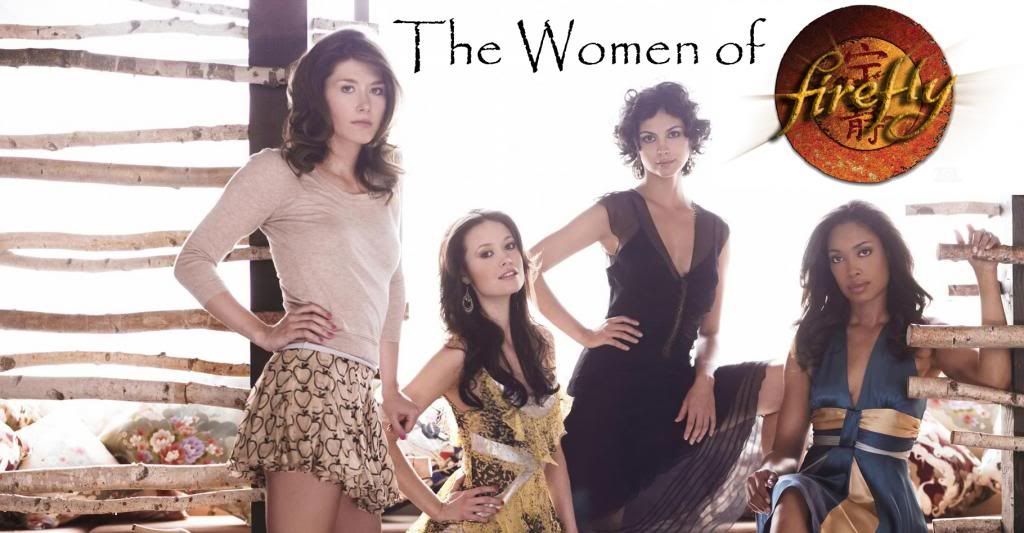
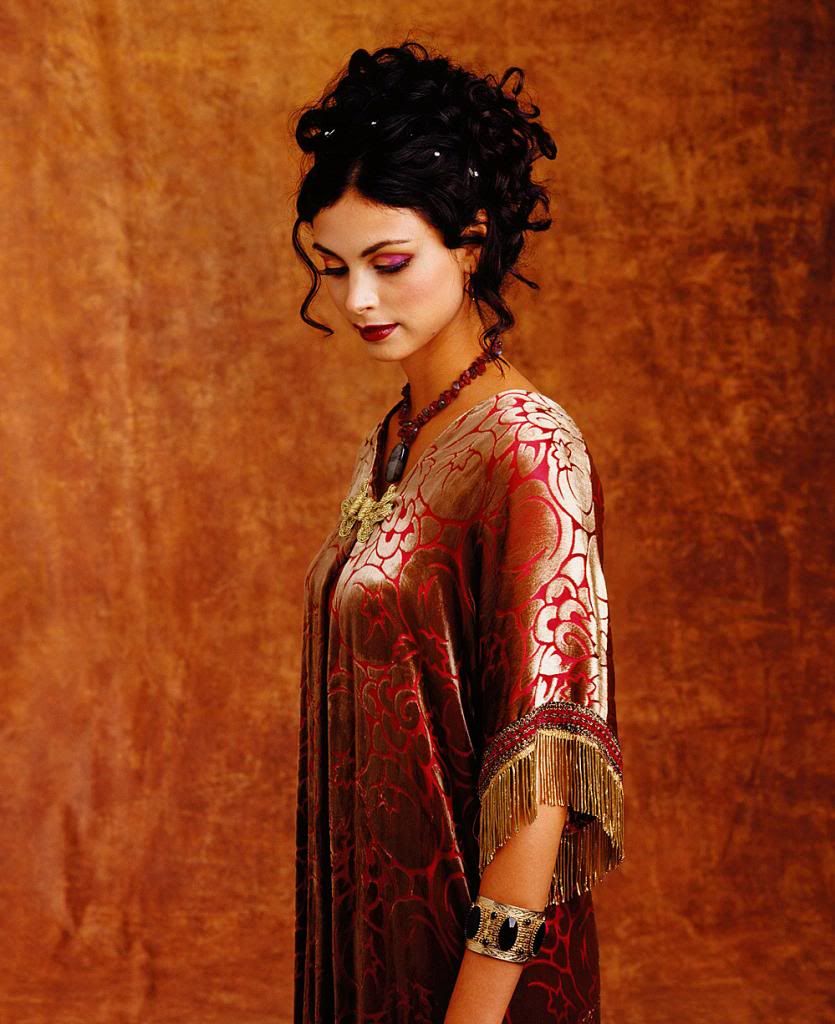
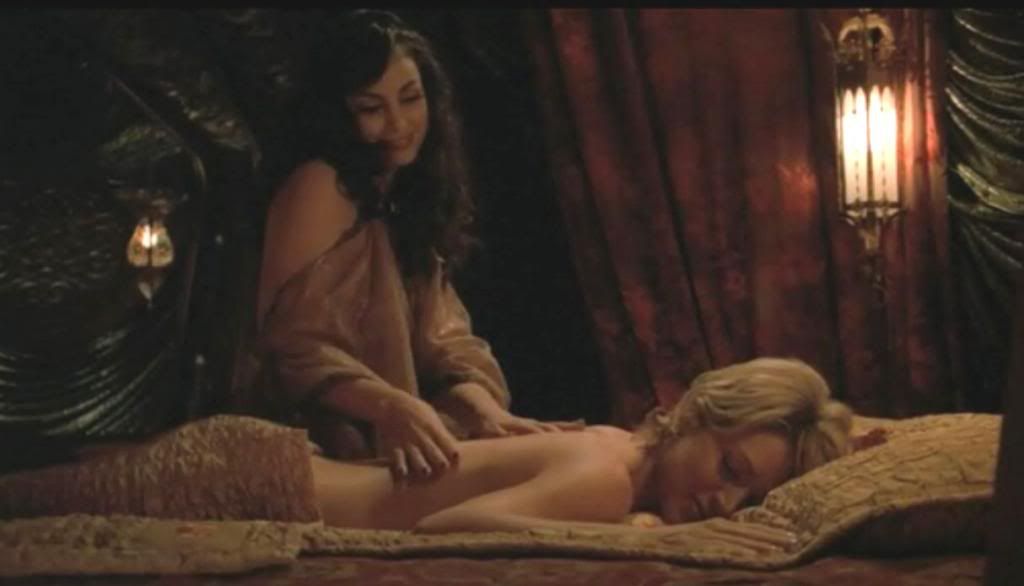
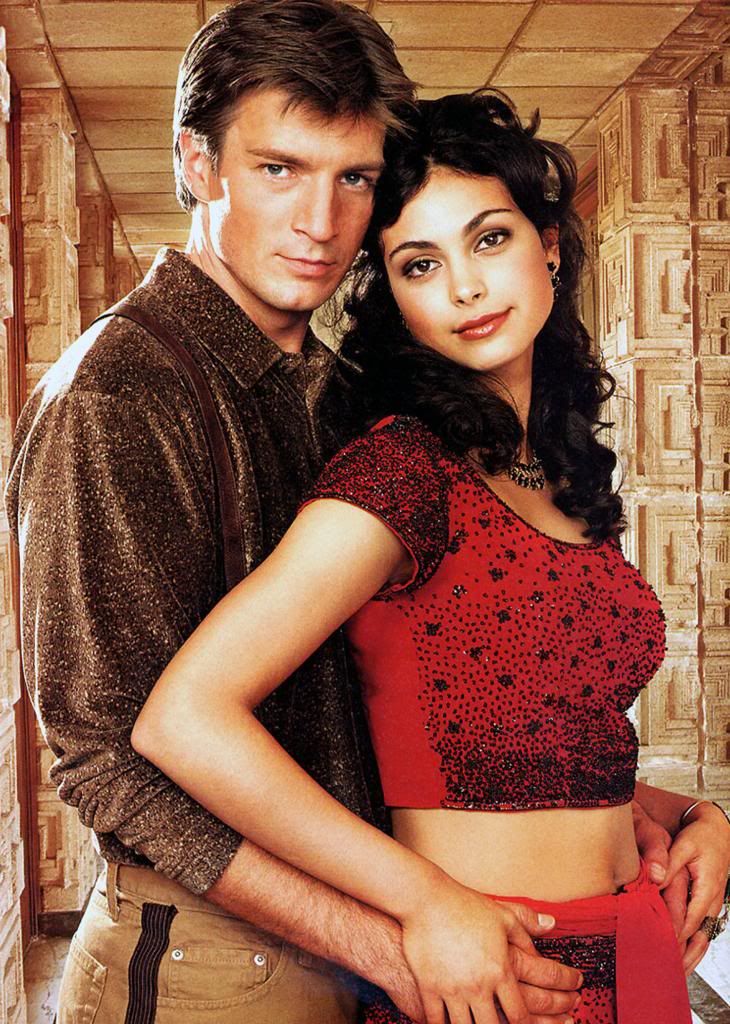
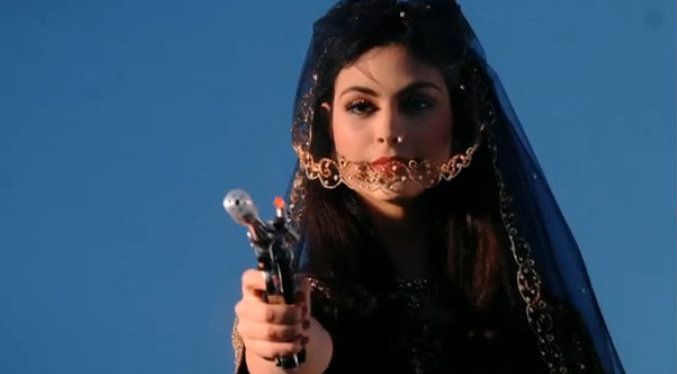

I couldn't find a link about the Reaver's thing. Could you post it?
ReplyDeleteThe missing link has been fixed. Thanks for catching it for us!
DeleteGood job with the post! Thank you so much.
ReplyDeletePsychologist in Azusa